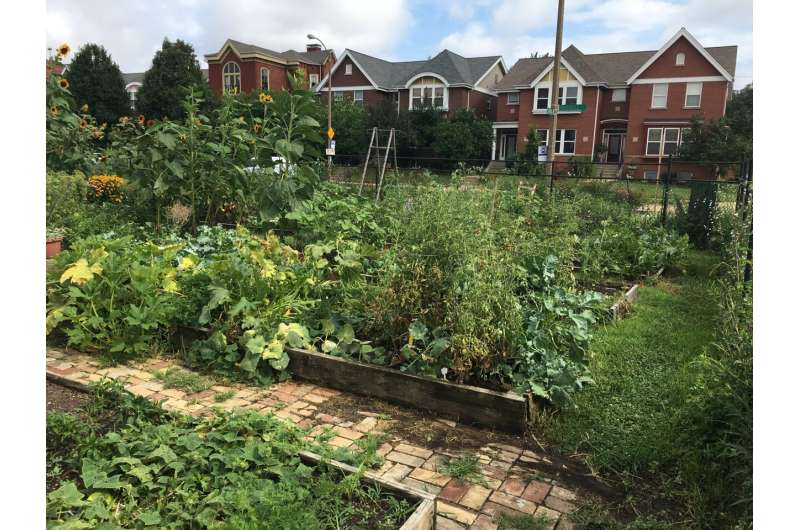This article has been reviewed according to Science X's editorial process and policies. Editors have highlighted the following attributes while ensuring the content's credibility:
fact-checked
peer-reviewed publication
trusted source
proofread
Scaling up urban agriculture: Research team outlines roadmap

Urban agriculture has the potential to decentralize food supplies, provide environmental benefits like wildlife habitat, and mitigate environmental footprints, but researchers have identified knowledge gaps regarding both the benefits and risks of urban agriculture and the social processes of growing more food in urban areas.
In a new paper published in Nature Food, an interdisciplinary group of experts, including a researcher from the University of Illinois Urbana-Champaign, surveys existing international studies on the benefits and downsides of urban agriculture and propose a framework for scaling it up.
Study co-author Chloe Wardropper, assistant professor in the Department of Natural Resources and Environmental Sciences in the College of Agricultural, Consumer and Environmental Sciences (ACES) at U. of I., says more than two-thirds of the global population is expected to live in urban areas by 2050, and the resilience of these areas may be compromised by their heavy reliance on imported food. Increasing urban agriculture could reinforce the sustainability and resilience of urban regions in the future, but Wardropper says there are open questions about how best to scale up and what environmental, health, and equity concerns would need to be addressed.
"We propose a framework of three interconnected phases to better understand and shape urban agriculture growth in the future," Wardropper said. "The first phase of growth would include expanding individuals' interest in, knowledge of, and access to resources to undertake agriculture in urban regions. This phase should be followed by institutionalization, or the transformation of rules and organizational support for urban agriculture. Third, economic and market growth would increasingly support and diversify urban food."
She notes that urban agriculture is not a panacea; urban-rural connections will remain important for global food security and consumption.
"We need to consider all the tools in the toolbox for sustainability and resilience under climate change," she said. "Urban agriculture could be particularly important for cities like Miami whose imports could be cut off unexpectedly by extreme weather."
More information: Jiangxiao Qiu et al, Scale up urban agriculture to leverage transformative food systems change, advance social–ecological resilience and improve sustainability, Nature Food (2024). DOI: 10.1038/s43016-023-00902-x
Journal information: Nature Food
Provided by University of Illinois at Urbana-Champaign




















